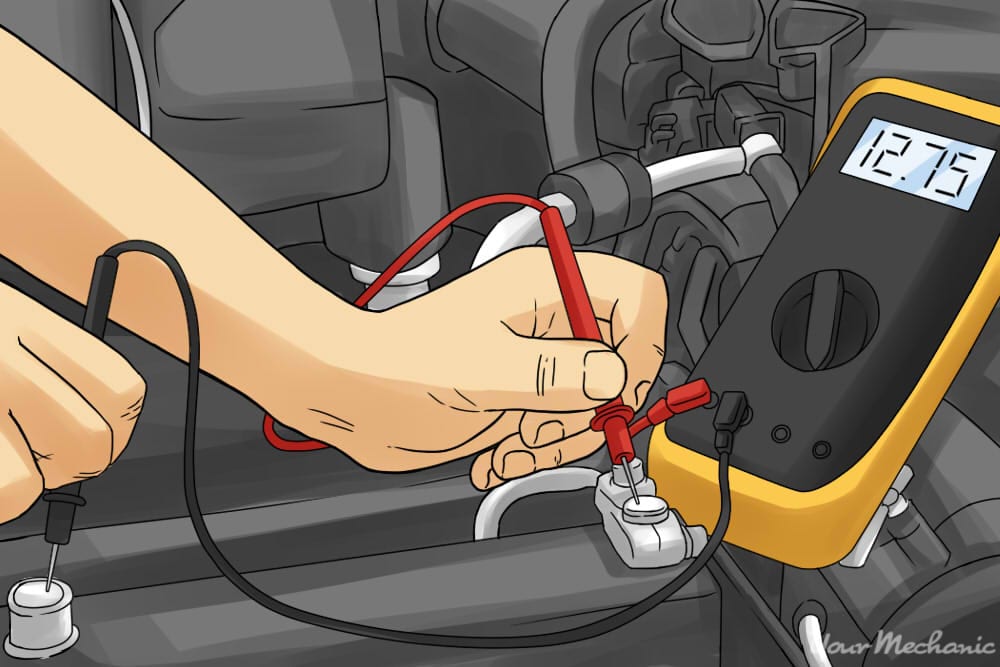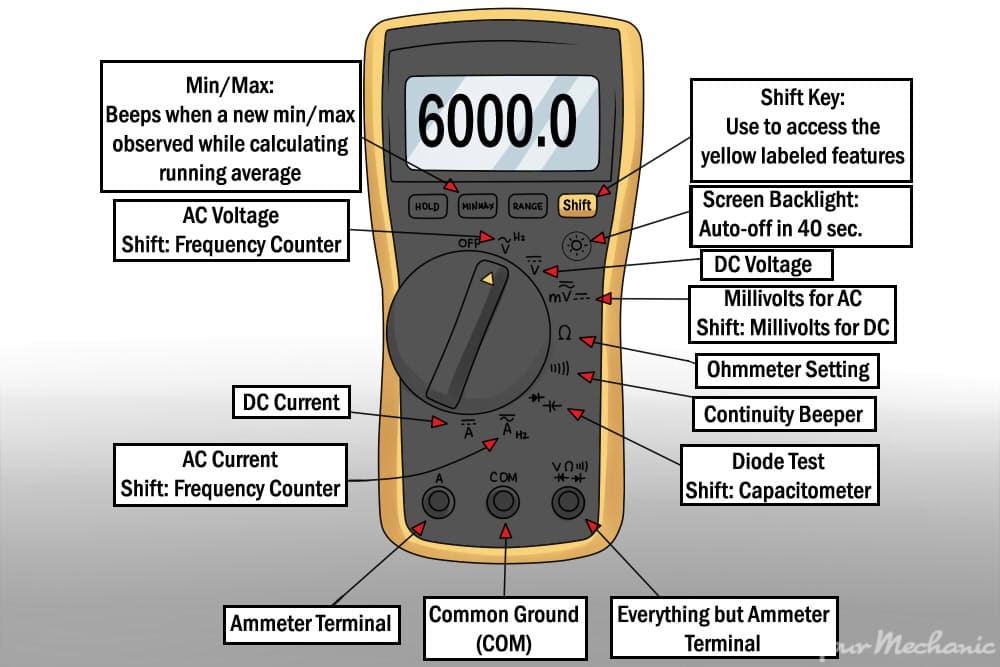

If you’ve ever had the charge of your car battery inspected, you’ve probably seen a multimeter. Automotive multimeters are common tools used by mechanics and do-it-yourself car owners alike. It is a tool used to measure two or more electrical values, typically in units of voltage (volts), current (amps), and resistance (ohms). Multimeters often include additional testing features used by electrical technicians on a case-by-case basis, such as frequency, decibels, temperature, alkalinity, and more.
The average digital multimeter, more popular and common than the traditional analog multimeter, comes with:
A Display Screen: For viewing measurements.
Buttons: For selecting functions with varying options depending on the model.
Dial or rotary switch: For choosing measurement values (volts, ohms, amps, etc.).
Input jacks: For inserting test leads.
A multimeter can be used to test a variety of electrical components in your vehicle, such as:
Car Battery Charge: A low-charged battery may prevent the car from starting.
Checking Battery Terminals: Dirty, loose, or corroded battery terminals can contribute to starting problems. A multimeter can check the battery connections as well as the battery for a drop in voltage.
Leak Test on Battery Cover: The charge from a battery can slowly leak as deposits build up on the top and terminals. Any voltage that appears when testing this section indicates a drain in the battery charge.
Alternator Function: The alternator produces electricity to charge the car battery while driving. It can be tested just like the battery, but with the car idling instead of turned off.
Sender Units: A multimeter can check the fuel tank for continuity by measuring resistance levels at a full, half-full, and empty tank. They should show equal gaps between readings. If they’re close together, it indicates shorted out resister tracks.
Ignition Tests: Different components of the ignition system can be measured for accuracy using a multimeter. This includes the spark plugs, distributor, and ignition coils.
Car Horn: A multimeter can test the fuse in malfunctioning car horn for continuity. An “Out of Limits (OL)” reading indicates a blown fuse.
Having a multimeter to check electrical currents in car components can even save you a few repair trips. A battery may only need recharging instead of replacement, and discovering the alternator as the source of a low-charged car can save you from an unnecessary new-battery purchase. Read on to know what to look for in a multimeter.
How to Choose a Multimeter
When shopping for a multimeter, you’ll want to decide between an analog and a digital model. Digital multimeters have more functions, and a higher input impedance ― some even connect to smartphone, tablets, and computers. Analog ones are usually limited to the three basic measurements; volts, amps, and ohms. Before buying a multimeter, ask yourself these 4 questions:
1. Does it check DC voltage? Car electrical systems run on DC voltage. The multimeter must be able to read DC voltage to provide accurate data on charge levels. The majority of multimeters perform this test, but it’s always smart to check.
2. Can it test for continuity? Continuity tests for a break in a circuit or wire that can’t be seen visually. Multimeters that beep while performing a continuity test are a greater help in hard-to-reach areas. The meter should display zero for a bad component, and anything higher than one for a good part.
3. Does it test resistance? Though only used on occasion in automotive repair, resistance tests indicate whether an electrical current is being blocked from moving through a circuit or wire. It must fall within a certain range, otherwise, it indicates a faulty part, like a fuel pump.
4. Is it safe? Multimeters are designed to measure electricity. Using them may put you close to high currents. Be sure to find one that combines function with safety features. Safety precautions include internal blast shields, shrouded plugs, finger protection from sliding down probes, isolation slots, and input protection.
5. How does the price compare to function? Higher-priced multimeters tend to have significantly more functions of measurement. If you intend to use it for more than just automotive purposes, this may be beneficial. Most any multimeter will help in auto repair, but the cheapest options are not built for many uses and their buttons will start to malfunction. If you intend to use the multimeter frequently, it’s best to go with a mid-to-higher priced option.




